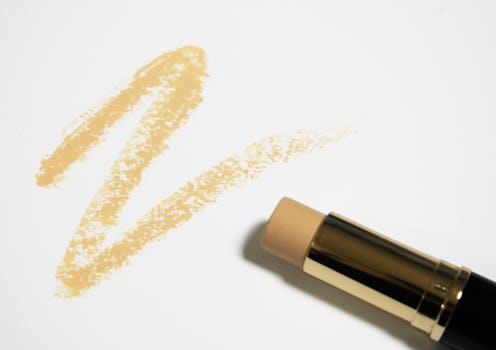Life
These Innocent Habits Could Be Making You Sick

When it comes to staying healthy, we know to avoid eating too much junk food, staying up late, or coming in contact with too many germs. However, while these are the obvious culprits, there are a number of other seemingly innocent habits that could be making you sick. If you find that you're catching a cold more often than you would expect, you might want to revisit some of your daily habits, as they could be the reason you're so surprisingly falling ill, even if what you are doing seems like it's free of any harm.
Despite the general knowledge we have about eating well, exercising, and covering our mouth when we sneeze, people in the U.S. suffer 1 billion colds over the course of the year, according to WebMD. Keeping up on your healthy habits can definitely help boost your immune system and prevent you from getting sick, but some of your other, unsuspecting daily activities could be responsible for hampering your immunity and exposing you to germs and bacteria that can make you not feel well.
If you keep getting sick and you're just not sure why, consider these 11 innocent habits that are really not all that innocent when it comes to your health.
1. Using The ATM
Getting cash out of the ATM might sound like a harmless decision, but research from Britain found that ATMs are as dirty as public bathrooms, containing pseudomonads and bacillus, bacterias which are known to cause sickness and diarrhea.
2. Eating The Same Food Daily
Although there's nothing wrong with loading up on your go-to healthy foods regularly, you want to make sure there's some variety in the foods you are eating, or you could put yourself at risk for nutritional deficiency. One study from the Journal of Nutrition found that eating a variety of healthy foods puts you at a lower risk of heart disease, stroke, and diabetes.
3. Taking Steamy Showers
There's nothing like a nice hot shower after a long day, but if your routinely let your bathroom get too steamy, the moist environment could become a a breeding ground for for mold and dust mites, according to WebMD. If you can't go without a hot shower, keep your door or window open to allow some steam to escape, and scrub your bathroom weekly.
4. Staying Inside All Day
Whether you work in an office or you're just not an outdoorsy person, you may be putting your health at risk by never seeing the sun. Not only does getting outside give you that much-needed vitamin D — which can help fight colds and flu — but research from Chiba University in Tokyo shows that spending time outside in nature can lower levels of the stress hormone cortisol, decrease blood pressure, and decrease heart rate.
5. Eating At Your Desk
With such busy workdays, it's not uncommon for people to eat at their desk. However, a study from the University of Arizona found that people's work desks work desk contain over 400 times more germs than an average toilet seat. You're better off eating at a kitchen or table in a designated food area.
6. Going To The Gym
No, this isn't an excuse to avoid working out — it just means you should wipe down your gym equipment before using it. A recent report from FitRated.com found that an exercise bike has 39 times more bacteria than a plastic cafeteria tray, a treadmill has 79 times more bacteria than a water faucet, and at the very worst, free weights contain 362 times more bacteria than a toilet seat.
7. Using Makeup Testers In Stores
Sure, you definitely want to try out that lipstick color before buying it, but you might want to be wary of those in-store testers. A few years ago, Good Morning America went undercover and discovered that on average, public makeup testers are only replaced once a year, and they test positive for yeast, mold, and even fecal matter.
8. Taking Natural Supplements
"Avoid all 'nutritional supplements' that have not been approved by the FDA, especially 'herbal' products that can even be dangerous to health," says Morton Tavel, MD over email. The government does not require supplement-makers to list warnings, potential dangers, and side effects on their products, and many clinical trials fail to prove the efficacy of these supplements. Talk to your doctor before taking something new, and do your research to make sure you know what you're taking.
9. Lighting Candles
Candles can make your house smell nice, but they also are a common cause of carcinogens and they can cause or worsen allergies. Studies from the Journal of Environmental Health found that 19 percent of the population have experienced adverse reactions to fragrnaced procuts, so if you like to light candles, opt for vegetable-based ones, which are better for your health.
10. Washing Your Dishes
You'll definitely want to continue cleaning off those used dishes, but you'll want to make sure you're using a fresh sponge when using it. According to a study from NSF International, the kitchen is a breeding ground for harmful microorganisms such as E. coli, salmonella, and listeria, so replace your sponges frequently so you're not spreading these germs around.
11. Going Into The Hot Tub
A dip in a hot tub can feel great, but it can also give you an infection or a rash. Chlorine and other disinfectants break down more quickly in hot water, which means bacteria can still grow. This can lead to skin rashes called "hot tub folliculitis" as well as respiratory infections such as "hot tub lung."
Not all these habits are necessarily bad for you, but knowing their hidden dangers can help prevent you from getting sick.
Images: Pixabay (12)